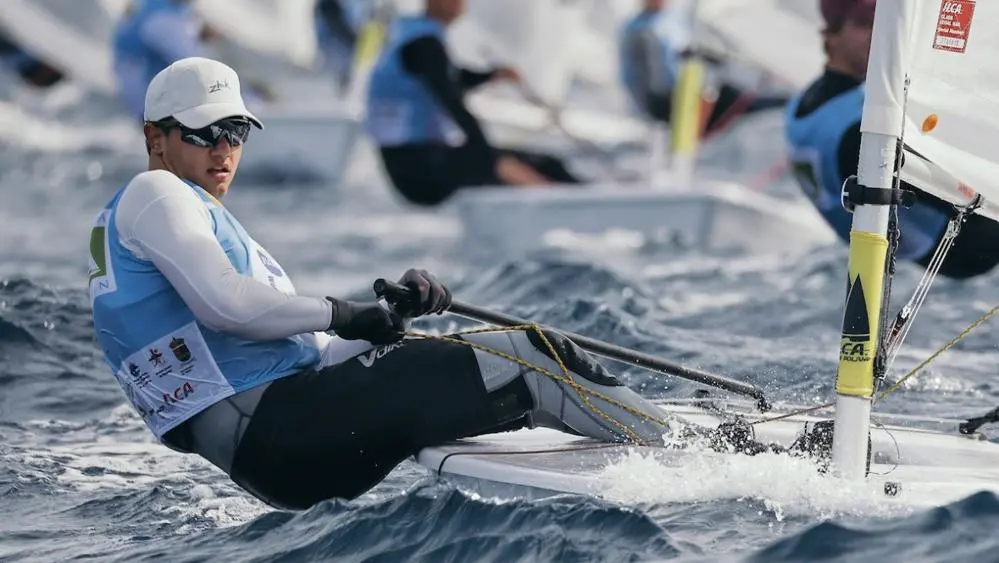
Student athletes shine on the world stage with Turing funding
Sports Excellence Programme students have been benefiting from Turing funding support
3 February 2026
21 November 2022
As England prepare to kick off their first match of the FIFA World Cup, Solent University’s Course Leader for BSc (Hons) Football Studies, Kevin Braybrook looks at what they need to do on the pitch.
As England prepare to kick off their first match of the FIFA World Cup, Solent University’s Course Leader for BSc (Hons) Football Studies, Kevin Braybrook looks at what they need to do on the pitch.
The narrative of the FIFA World Cup in Qatar will continue to be discussed, debated and argued long after the champions are crowned, but the performance of the nations competing in the tournament will be framed differently due to their relevant success.
England have an interesting opening fixture against Iran. One that will indicate the quality of the group, preparation of the teams over a short period and who will be able to manage the expectations and demands, on and off the pitch.
Although recent performances have been below the desired intentions, there is no denying that the individual quality and reputation of the England players should make them strong favourites to win the game, but for many keen onlookers it will be the framework deployed that provides interesting debate.
The England formation will be heavily influenced by the players available and those able to be at the tournament, but key will be how England’s intended style of play will be applied in the team shape.
Will England look to play with a back 3, so often used in tournament football by Gareth Southgate, in order to play with an overload in the defensive line while allowing the attacking threat of the wing backs to be expansive and into areas they hope will create an attacking threat.
Establishing this positive approach for attacking wingback will create spaces for the attacking midfield players to play narrow and in half spaces, which provides combinations between players that can be instrumental on the outcome.
Exploring central overloads with the aim to consistently keep the attacking threat high not only is interesting in possession but does support those attacking players playing with an opportunity to press high and early which could be a way to counter high and from the press.
Often a shape will be reliant on the players able to be selected and the opposition, so will England look to stay in a back 4 shapes, organised and compact which will be consistent in the systems many play in at club level?
Any team that can call upon players like Declan Rice playing as a front pivot and with creative qualities of Foden, Grealish, Mount, Sterling, Saka or Maddison being able to play together and close enough to the genuine goal threat of Kane does make this an interesting selection problem for the manager and one that he will need to get correct.
Iran will look to effect areas they may be able to impact, and this may be the English expectations, recent form or knowledge of the English style of play from their own experiences of the Premier league.
In Carlos Queiroz, Iran has a manager that has built a strong reputation as a coach and tactician across the footballing landscape. Working at Manchester United, under the presence of Sir Alex Ferguson, and winning major trophies illustrates his qualities and an appreciation towards having a game plan for a match of this stature - and how to deny those spaces England will look to dominate.
Alongside Quiroz they have Alireza Jahanbakhsh, who during his time in the premiership at Brighton FC showed an ability to score goals and will be a threat in games as indicated in his international record.
Mehdi Taremi is an additional player capable to cause problems in the final third that England need to monitor, as his form at Porto again shows a talented player keen to make his mark at this level of the competition.
Football can have many variables, but if England are looking to really impact the tournament and achieve this groups potential, they do need a strong start and a winning result before meeting alternative challenges which will be encountered in this group.
Kevin Braybrook is the Course Leader for Football Studies at Solent University. Upon completion of a professional playing career, Kevin has been employed full-time in a variety of coaching, scouting and recruitment roles at premiership level for clubs ranging from Southampton FC, Liverpool FC, Newcastle United FC, Wolverhampton Wanderers FC and Stockport County FC. He achieved the highest coaching award in world football, the UEFA Pro licence diploma. Kevin is an active researcher and author with publications focused on coaching, talent Identification and the barriers, challenges and opportunities of female coaches within football. Kevin continues to be a consultant and industry expert, presenting at conferences and across media where he discusses his research interests around female coaches and football coaching across the player pathway from academy to professional.
